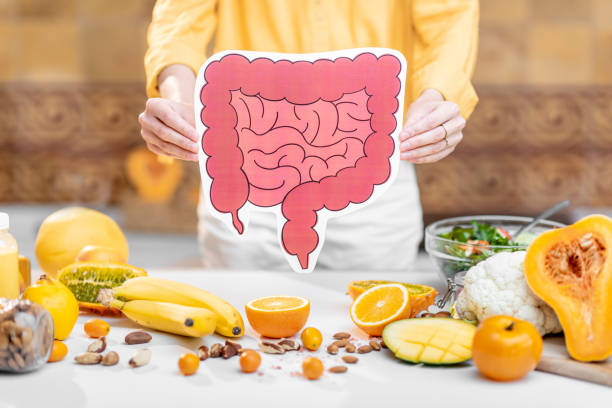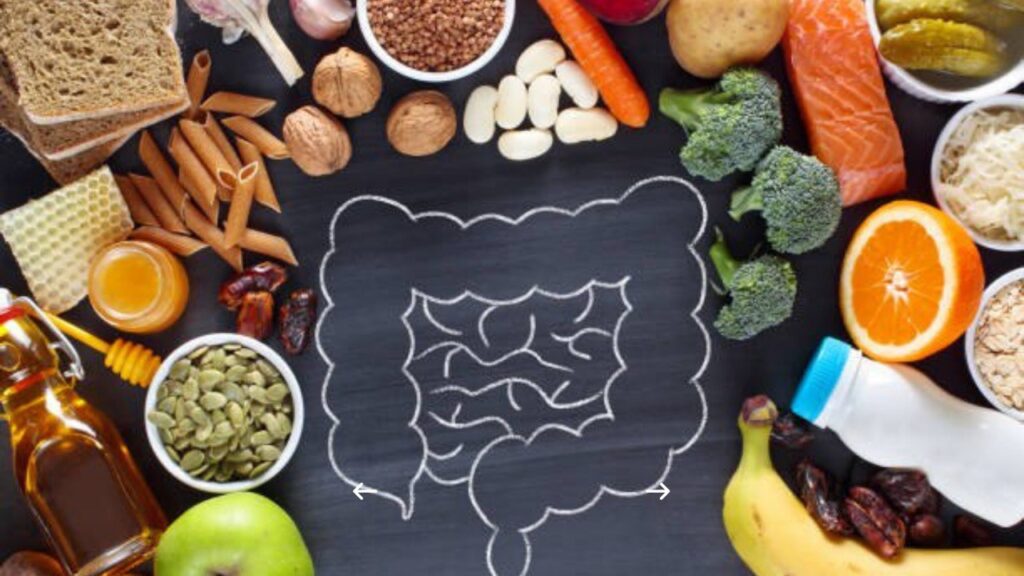Our gut, or more accurately, our “second brain,” plays a massive role in our overall health and well-being. It affects everything from digestion and nutrient absorption to immunity and even mental health. If our gut health is out of balance, we can experience a range of problems, from bloating, gas, and constipation, fatigue, and even increased susceptibility to illness. The good news is that we can very easily enhance our gut health naturally through food. And what better way to do that than by learning from the old wisdom of the traditional Indian diet? In this article, we will look at how to improve gut health naturally with an Indian diet, the foods, principles, and practices.
What is Gut Health and Why is it Important?
Your gut is home to trillions of microorganisms, including bacteria, fungi, viruses, and other microbes, which are all known as the gut microbiota. This complex community has a very important role to play in:
Digestion and Nutrient Absorption: Breaking down food and absorbing valuable vitamins, minerals, and other nutrients.
Immune System Function: Much of your immune system resides in your gut, helping to keep you safe from invading pathogens.
Mental Health: The gut-brain axis, a two-way communication system, links your gut to your brain, influencing mood, cognition, and even mental health disorders.
Metabolism and Weight: Gut bacteria influence how your body processes food and stores energy.
Protection against Chronic Diseases: An unbalanced gut microbiota (dysbiosis) is linked to many chronic diseases, including inflammatory bowel disease (IBD), type 2 diabetes, obesity, and even some cancers.
An unhealthy gut can manifest in many ways, including:
- Digestive issues (bloating, gas, constipation, diarrhea)
- Food intolerance
- Skin problems (eczema, acne)
- Fatigue and loss of energy
- Autoimmune disorders
- Mood swings and anxiety

The Indian Diet: A Natural Path to Gut Health
The traditional Indian diet, in all its rich regional variety, is naturally rich in the ingredients that guarantee a healthy gut. It’s characterized by:
Plant-Based Dominance: Strong emphasis on vegetables, fruits, legumes, whole grains, and nuts, all of which are high in fiber – food for good gut bacteria.
Fermented Foods: A treasure trove of probiotics, the “good” bacteria that live and feed a healthy gut.
Spices and Herbs: Many Indian spices and herbs used in cooking have anti-inflammatory and prebiotic effects, which boost gut health in addition.
Mindful Eating: Traditional Indian eating habits often promote eating slowly, chewing food well, and eating meals in a relaxed environment, all of which aid digestion.
Notice the difference between the traditional Indian diet and the modern, often highly processed, versions. This blog post is about the principles of traditional, home-cooked Indian food. We’ll show you how to improve gut health naturally with an Indian diet by highlighting these foundation points.
Key Foods and Principles: How to Improve Gut Health Naturally with an Indian Diet
Here’s a list of specific foods and practices in the Indian diet that promote a healthy gut:
Fiber Powerhouse:
Vegetables: Eat a large variety of vegetables like okra (bhindi), spinach (palak), eggplant (baingan), cauliflower (gobi), carrots, and gourds. These are high in dietary fiber, which is a prebiotic, feeding good gut bacteria.
Fruits: Mangoes, bananas, papayas, guavas, pomegranates, and apples are good sources of fiber and antioxidants.
Legumes: Lentils (dal), chickpeas (chole), kidney beans (rajma), and other legumes feature prominently in the Indian diet. They contain a lot of soluble and insoluble fiber, which ensures regularity and healthy gut lining.
Whole Grains: Replace refined grains with whole grains such as brown rice, whole wheat roti (chapati), millets (ragi, jowar, bajra), and oats.
Probiotic Power from Fermented Foods:
Dahi (Yogurt/Curd): Indian favorite, rich in live and active cultures (probiotics). Enjoy it plain, in raita (yogurt with vegetables and spices), or as lassi (yogurt-based drink). Make sure that you are getting plain, unsweetened dahi.
Idli and Dosa: South Indian staples made of fermented batter of rice and lentils, providing a good shot of probiotics.
Dhokla: Steamed Gujarati savory cake, made from fermented batter.
Kanji: Fermented carrot-beetroot-spiced drink, popular in North India.
Pickles: Achar, when made traditionally using natural fermentation processes, is a rich source of probiotics.
Spice Up Your Gut:
Turmeric (Haldi): Contains curcumin, a powerful anti-inflammatory compound that can calm the gut lining and aid a healthy gut environment.
Ginger (Adrak): With its anti-inflammatory and digestive properties, ginger can calm gas and bloating.
Cumin (Jeera): Aids digestion and reduces gas.
Coriander (Dhania): Conveys carminative properties (reduces gas) and supports healthy digestion.
Fennel Seeds (Saunf): Frequently consumed after meals, fennel seeds relax digestion and fresh breath.
Asafoetida (Hing): With its strong flavor, hing reduces bloating and gas.
Prebiotic Boosters:
Garlic and Onions: Excellent sources of prebiotics, providing food to beneficial gut bacteria.
Bananas (especially slightly green ones): High in resistant starch, a form of prebiotic fiber.
Hydration is Key:
Drink plenty of water throughout the day to keep your digestive system balanced.
Buttermilk (Chaas) is a cold and soothing drink that also provides you with probiotics.
Mindful Eating Habits:
Eat Slowly and Chew Well: This helps your digestive system digest food well.
Eat in a Calm Environment: Stress is detrimental to digestion.
Listen to Your Body’s Hunger and Fullness Cues: Avoid overeating.
Avoid Processed Foods: They can lead to inflammation.
Putting It All Together: A Sample Gut-Healthy Indian Meal Plan
Here is a sample meal plan to illustrate how to improve gut health naturally with an Indian diet:
Breakfast: Oats porridge with nuts and seeds, or Idli/Dosa with sambar (vegetable stew made with lentils) and coconut chutney.
Lunch: Whole wheat roti with a vegetable sabzi (such as spinach and potato), dal (lentil soup), and a side of dahi (yogurt).
Dinner: Brown rice with a mixed vegetable curry, a side of raita (yogurt with cucumber and spices), and a small serving of salad.
Snacks: Fruits, a fistful of nuts, or a glass of buttermilk.
Before bedtime: A glass of warm milk with a pinch of turmeric.
Conclusion
By adopting the principles and foods of the traditional Indian diet, you can naturally nourish your gut and promote overall health. Remember to prioritize whole, unprocessed foods, introduce fermented foods, include gut-friendly spices, and eat mindfully. Implement these changes gradually, and observe your body’s response. Seek personalized guidance from a registered dietitian or healthcare professional. Begin this journey and learn how to promote gut health naturally with an Indian diet – your gut will thank you!

